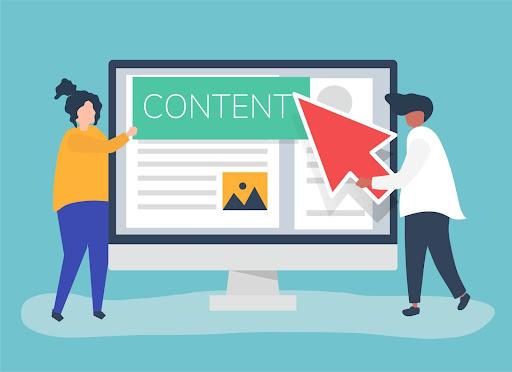On April 19, 2024, Google finished rolling out a significant update that will forever reshape the landscape of Search Engine Optimization (SEO): the Helpful Content Update (HCU). This initiative is part of Google's ongoing effort to ensure that users are met with content that is informative, genuinely useful, and satisfying. According to Google’s official blog statement, users “can now see 5% less low-quality, unoriginal content in search results versus the 40% improvement we expected across this work (The Keyword).”
Understanding how to navigate the HCU is crucial for website owners, content creators, and SEO professionals as the digital world evolves. This update emphasizes the importance of creating people-first content, marking a shift away from strategies that primarily cater to search engines. In this blog post, we'll dive into what the Helpful Content Update entails, why it's a game-changer in the SEO community, and how you can adapt your content strategy to thrive under these new guidelines.
What is the Google HCU?
The Google Helpful Content Update is an algorithm upgrade introduced to enhance the quality of content that appears in search results. This update is designed to prioritize content that provides a satisfying experience to users, rather than content that seems to be crafted primarily to rank well in search engines. The core objective of the HCU is to reward content that helps, informs, or entertains the user in a meaningful way.
Key Features of the Google Helpful Content Algorithm Update
- Focus on User-First Content: The HCU aims to spotlight content that genuinely addresses the needs and questions of users. This means that articles, blogs, and web pages should be informative, engaging, and valuable to the reader. Content should be created with the intent of providing knowledge or solutions that are directly relevant to the queries of the target audience.
- Penalization of SEO-First Tactics: With this update, Google has started to penalize content that is overly optimized for SEO at the expense of user experience (UX). This includes practices such as keyword stuffing, creating content solely from AI without human review, or duplicating content across multiple pages that offer little to no original value. Such tactics are now more likely to harm a site's ranking rather than help it!
Impact on Search Rankings
The introduction of the HCU has led to significant changes in how search rankings are determined. Websites that have historically relied on SEO-first strategies may see a decline in their search visibility if they do not adapt to the new guidelines. Conversely, sites that focus on creating high-quality, user-first content are likely to experience improved rankings. This switch encourages a more organic approach to content creation, where the primary goal is to satisfy the user's search intent.
There is a clear message here to all digital content creators: the path to SEO success is through the creation of content that resonates with and is useful to the audience. By aligning your content strategy with these principles, not only do you stand to gain better rankings, but you will also build a more loyal and engaged audience.
Immediate Effects of the HCU on Websites
The Helpful Content Update has had a tangible impact on websites across various industries. Content that suffered a drop in rankings post-HCU typically shared several detrimental characteristics, including:
- Thin Content: Articles that provided minimal information and were often stuffed with keywords to manipulate SEO rankings.
- Lack of Expertise: Content that failed to offer unique insights or authoritative information on the subject matter.
- Poor User Engagement: Pages with high bounce rates and low interaction indicate that the content was not meeting user needs or expectations.
Insights from Industry Experts
SEO experts (such as Search Engine Journal) have weighed in on the effects of the HCU, emphasizing the shift towards more authentic and user-focused content creation. The key to thriving post-HCU is to genuinely understand and address the intent behind user queries. Content should be engaging, well-researched, and directly relevant to the interests of the target audience.
Experts across the field suggest conducting regular audits to identify and improve (or remove) pages that might be considered low-value in the eyes of the new Google algorithms. This proactive approach helps maintain a healthy website profile while aligning with Google's goal of making the web more helpful for everyone using it.
How to Evaluate Your Current Content

Evaluating and refining your website content has never been more crucial! A thorough content audit will help you distinguish between SEO-focused and user-focused content, ensuring your site aligns with the latest search engine guidelines. Here’s a step-by-step guide to auditing your website content effectively.
Step 1: Identify SEO-Focused vs. User-Focused Content
Start by examining pages for signs of SEO-focused content, such as an unusually high density of keywords, articles that only superficially cover topics, or content that fails to directly answer user questions.
In contrast, user-focused content can be recognized by its thorough answers to user inquiries, unique insights, and the inclusion of helpful, practical advice or solutions. This distinction is crucial for aligning your content with the expectations of both your audience and search engine algorithms.
Step 2: Utilize Tools and Metrics
Next, you’ll want to employ tools like Google Analytics to examine various metrics, including bounce rate, average session duration, and pages per session. High bounce rates and low session durations might suggest that your content is not engaging or relevant to your visitors.
Additionally, focus on user engagement metrics such as comments, shares, and interaction rates on your content. High engagement levels often indicate that the content resonates well with your audience, providing valuable insights into what works and what needs improvement.
Step 3: Analyzing Content Performance
Always remember to focus on analyzing content performance. Use tools such as Google Search Console to monitor how your pages are performing in search results. Pay attention to metrics like impressions, click-through rates (CTR), and the positioning of your keywords.
It’s also a good idea to conduct a keyword gap analysis, as this will allow you to identify any topics your audience is interested in that you haven't yet covered. The analysis will help you pinpoint opportunities to expand or refine your content to better meet the needs of your audience.
Importance of User Intent and Content Relevancy
Understanding user intent is central to creating content that performs well under the new Google guidelines. User intent refers to what the searcher is looking for when they type their query into a search engine.
Conduct a keyword intent analysis by categorizing your target keywords into types such as informational, navigational, transactional, or commercial. This classification will assist you in understanding what users expect to find and allow you to tailor your content accordingly.
Additionally, ensure content relevancy by making certain that each piece of content directly addresses the needs or questions associated with the keywords it targets. The more relevant your content is to the user's intent, the better it is likely to perform in search results.
Strategies to Adapt and Thrive Post-HCU

The Helpful Content Update has set a new benchmark for content quality on the web, emphasizing the importance of user-centric and valuable content. To adapt to the new SEO landscape, here are some effective strategies to keep in mind:
- Understanding Your Audience: The first step in creating content that resonates with users is to deeply understand who your audience is. What are their needs and pain points? What information are they searching for? Use surveys, social media management, and audience analytics to gather as much data as possible about your audience. This understanding will guide the creation of content that is truly relevant and useful to them.
- Focusing on Experience, Expertise, Authority, and Trustworthiness (E-E-A-T): Google places a high value on content that demonstrates expertise, authority, and trustworthiness. Ensure that your content is created by knowledgeable authors or backed by authoritative sources. Include credentials, cite reliable sources, and present well-researched information to build trust with your audience.
- Direct Firsthand Insights Where Possible: Whenever you can, include firsthand insights. This could be original research, case studies, or your own professional experiences. Content offering unique perspectives that can't be found elsewhere tends to be more valuable to users and is thus favored by search engines.
Technical SEO Adjustments
While focusing on content quality, don't overlook the technical aspects of SEO. Ensure that your website is mobile-friendly, loads quickly, and has a logical structure that search engines can easily understand. Regularly update your site to fix broken links, streamline navigation, and improve user engagement metrics — all of which are crucial post-HCU.
Multimedia and Interactive Content
Incorporating multimedia elements can significantly enhance UX and engagement on your site. Videos, infographics, podcasts, or interactive tools not only make your content more engaging but also increase the time users spend on your pages.
These content formats help explain complex information in a more digestible way while catering to different learning styles, making your content more accessible to a broader audience.
Proofing Your Website Against Future Updates
As the digital landscape continues to change, so do Google's algorithms and guidelines. Staying ahead in SEO requires not just compliance with current standards but also preparedness for future changes.
Importance of Staying Updated with Google’s Guidelines
Google frequently updates its algorithms to improve the user experience and deliver the most relevant, valuable content. Keeping an eye on these updates is crucial for maintaining your digital presence on the web.
Regularly visiting Google's official blog and subscribing to SEO news platforms (i.e. Search Engine Land) will provide early insights into changes, as well as new best practices. Understanding these updates helps you anticipate shifts in SEO strategies so that you may preemptively adjust your approach.
Continuous Learning and Adaptation
The field of SEO is dynamic, requiring continuous learning and flexibility. Engage with SEO communities, attend webinars, and participate in forums to exchange knowledge with other professionals.
Implementing a culture of feedback within your content creation process can also be beneficial. Regularly review your site’s analytics to see what works and what doesn’t, and be prepared to pivot your strategy based on what the data tells you.
Building a Sustainable Content Strategy
To safeguard your site against the impact of algorithm changes, focus on building a sustainable content strategy that prioritizes quality and value. This means creating content that is not only informative and engaging but also trustworthy. Invest in thorough research, cite credible sources, and provide unique insights that add real value to your audience.
Try to diversify your content types to include videos, podcasts, or infographics to cater to different user preferences and enhance engagement. A robust content strategy that focuses on the needs of your audience will remain effective regardless of algorithm changes, as it aligns with Google’s overarching goal of improving user experience.
Stay Ahead of the SEO Game with Epic Web!
At Epic, we take a comprehensive approach to SEO strategy. We’re committed to staying at the forefront of Google algorithm updates so that you don’t have to. Get in touch with our expert team today!



